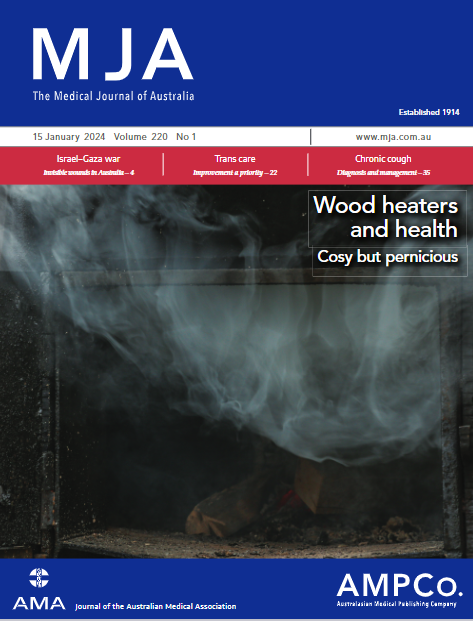General practitioners’ views and experiences of postpartum contraception counselling and provision: a qualitative–descriptive study
Abstract
Objectives
To explore Australian general practitioners’ views and experiences of undertaking postpartum contraception counselling and provision during the 6–8-week postnatal check.
Study design
Qualitative–descriptive study; semi-structured online interviews.
Participants, setting
General practitioners who provide postnatal care in Australian primary health care, recruited using purposive, convenience, and snowball methods, 16 June – 6 July 2023.
Main outcome measures
Views and experiences of postpartum contraception counselling and provision.
Results
Twenty-three general practitioners from six states were interviewed; the mean interview time was 30 minutes (range, 21–47 minutes), twenty-two participants were women, and twenty-one worked in metropolitan areas. All participants provide postnatal checks and had the training and facilities needed for providing contraceptive implant insertions. Twelve participants had training in intrauterine device (IUD) insertion, and twenty-one worked in practices with facilities for IUD insertions. Three themes were constructed: views and preferences regarding postnatal contraception counselling; postpartum provision of long-acting reversible contraception (LARC); and opportunities for improving postpartum contraception care in general practice. While most participants recommended LARC methods at postnatal checks, only twelve were trained to insert IUDs. Time constraints, limited access to training, limited financial support, and the lack of guidelines for postnatal checks and contraception care were seen as impeding postpartum contraception counselling. Participants highlighted the importance of access to education and training, appropriate remuneration for general practitioners, multidisciplinary collaboration among health professionals, the inclusion of practice nurses, and raising awareness among mothers of the importance of postnatal checks and postpartum contraception care.
Conclusion
General practitioners are well placed to facilitate discussions about contraception with women who have recently given birth. Postpartum contraception care in general practice could be improved by better access to contraception training, appropriate remuneration for contraception procedures, greater multidisciplinary collaboration, and national postnatal check and postpartum contraception guidelines.

 求助内容:
求助内容: 应助结果提醒方式:
应助结果提醒方式:


